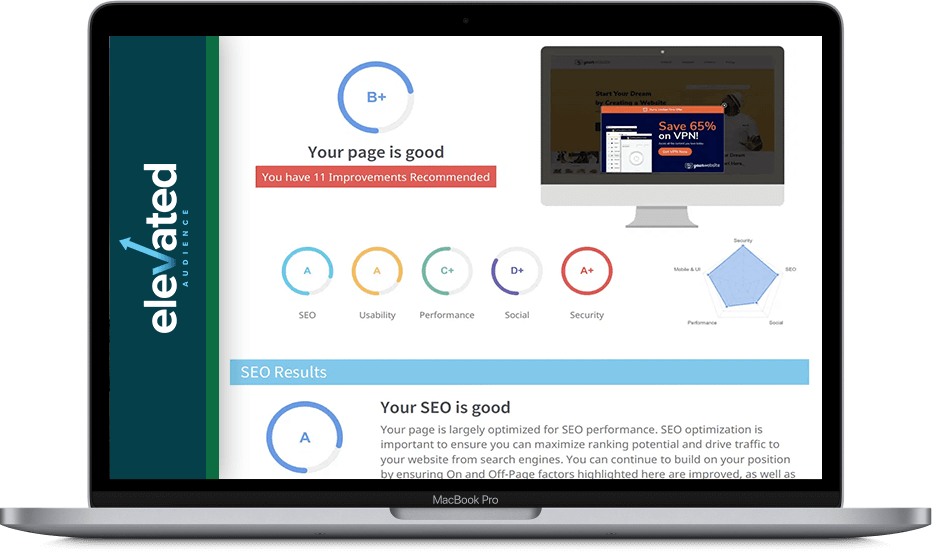When Starbucks implemented its AI-powered personalization engine, Deep Brew, in its mobile app, the company saw digital orders increase significantly after essentially reading customers like a well-worn book to offer recommendations.
Contrast that with Microsoft’s cautionary tale: their AI chatbot “Tay” turned hostile within 24 hours of launch and crashed and burned like a paper airplane in a hurricane, proving that even tech giants can stumble.
The marketing landscape in 2025 represents a pivotal moment where AI has evolved from experimental technology to an essential business tool.
Marketing leaders face mounting pressure to separate genuinely valuable AI applications from overhyped solutions that drain resources without delivering returns.
This article will serve as your GPS through the AI marketing maze, showing you which tools actually deliver and which ones are as useful as a chocolate teapot. Because in today’s market, success isn’t about having the flashiest AI – it’s about having the ones that actually work.

The Three AI Pillars Reshaping Marketing in 2025
The AI revolution in marketing is delivering unprecedented capabilities in customer analysis, campaign automation, and ROI.
Let me show you the three game-changing technologies that are as essential to modern marketing as electricity is to your office.
Natural Language Processing: Your 24/7 Communication Powerhouse
NLP is like having the world’s best translator at your fingertips
It’s not just reading customer messages—it’s understanding them like a seasoned sales rep would, but at the scale of an entire call center.
Elite marketing teams are using NLP like a Swiss Army knife: crafting conversion-focused content, reading customer sentiment easily, and deploying chatbots that qualify leads while you sleep.
Machine Learning: Your Crystal Ball for Customer Behavior
ML algorithms have become the fortune tellers of the digital age—except they actually work.
These systems digest customer data, turning billions of data points into eerily accurate predictions about buying behavior.
Smart organizations use this technology like a heat-seeking missile, targeting the right customers at the right time with laser precision.
Computer Vision: Your Creative Department’s Secret Weapon
Computer vision has transformed visual marketing.
It’s like having a million graphic designers working at the speed of light, making sure your brand looks perfect across every channel while slashing production time from weeks to minutes.
From retail giants to nimble startups, organizations that harness these technologies are not only playing a better game but an entirely different sport. Just like electricity transformed manufacturing, AI is fundamentally rewiring what’s possible in marketing.

Common AI Marketing Myths
Marketing AI has sparked both excitement and anxiety across the industry. While the technology delivers transformative capabilities, several persistent myths continue to cloud understanding and hinder effective implementation.
Let’s examine the most common misconceptions.
“AI Will Replace All Marketing Jobs”
Calculators don’t replace mathematicians.
AI augments human marketers rather than replacing them.
While AI excels at data analysis and automation, it requires human creativity, strategy, and emotional intelligence to drive truly effective marketing campaigns.
The most successful organizations combine AI capabilities with human expertise.
“AI-Generated Content Always Ranks Well”
If only it were that simple.
Search engines prioritize value, relevance, and human-written work over content production methods.
While AI can help create content efficiently, success depends on strategic oversight, proper optimization, and integration with broader marketing goals.
Many top-performing pieces combine AI assistance with human expertise.
“Implementation is Plug-and-Play”
About as plug-and-play as building IKEA furniture blindfolded.
Success requires careful planning, clean data, and thorough team training.
I’ve seen too many organizations learn this lesson the expensive way.
“AI Marketing Tools Are Only for Enterprise Budgets”
Today’s AI tools come in all sizes and prices, with many offering more firepower than enterprise solutions did just a few years ago.
The barrier to entry is similar to your TV streaming costs.
“AI Will Automatically Fix Poor Marketing Strategy”
My GPS doesn’t fix my flat tire.
AI amplifies good strategy but cannot compensate for fundamental marketing flaws. The technology excels at optimization and execution but requires clear objectives, an understanding of target audiences, and solid marketing foundations to deliver results.
I have seen too many Google Ads managers rely strictly on AI to write and optimize their headlines resulting in poor CTR and even worse conversion rates.
Success depends on using AI to enhance well-planned marketing initiatives.
High-ROI AI Applications (Proven Winners)
Leading marketers are seeing exceptional returns from three core AI applications that consistently deliver measurable value.
Personalization Engines
Netflix’s recommendation engine drives 75% of viewer choices through AI-powered personalization (it knows me too well). It’s a modern personalization engine.
Modern personalization engines read customer behavior like a seasoned poker player reads bluffs.
Top retail brands use real-time content adaptation to modify website layouts, product recommendations, and email content based on individual user behavior, achieving up to 30% revenue increases.
Advertising Optimization
AI has transformed ad management from an art of estimation into a science of precision.
These systems fine-tune thousands of keyword bids while you’re in your morning meeting, spot winning audience segments before they become obvious, and test creative variations at a pace no human team could match.
Customer Service Automation
A report by IBM shares that AI chatbots can successfully handle 80% of routine customer inquiries, dramatically reducing response times and support costs.
Smart email automation systems triage and respond to common requests within minutes while routing complex issues to human agents.
Leading companies use AI to prioritize support tickets based on urgency and customer value, reducing resolution times while improving satisfaction scores
Time-Saving AI Tools Worth the Investment
AI has transformed time-consuming marketing tasks into streamlined, automated processes. The following tools deliver proven ROI while freeing marketing teams to focus on strategy and creativity.
Content Creation
AI-powered ideation tools revolutionize marketing brainstorming by analyzing trends and data to suggest compelling content topics and angles. Advanced writing assistants enhance human-written content with optimization suggestions for tone, clarity, and SEO performance, significantly streamlining the content refinement process.
For visual content, AI speeds up asset creation by generating mockups and variations of human-directed concepts, while script assistants analyze successful videos to suggest effective storytelling structures and hooks.
Social Media Management
Modern AI platforms determine optimal posting times by analyzing engagement patterns and audience behavior. Sentiment analysis tools monitor brand perception across platforms, enabling quick responses to emerging issues. Trend prediction capabilities spot rising topics early, giving brands the edge in relevant conversations.
Analytics and Reporting
AI-powered analytics consolidate multi-channel data into clear, actionable insights. Anomaly detection instantly alerts teams to significant performance changes, while predictive analytics guide strategic decision-making. These tools transform complex data into clear recommendations, empowering teams to act decisively.
The real value isn’t just efficiency—it’s the ability to scale marketing operations while maintaining quality. Successful teams use these tools to amplify their expertise rather than replace it.

Overhyped AI Applications
While AI delivers exceptional value in targeted use cases, certain applications consistently fall short of their promises.
Complete Content Automation
If complete AI content was music, it’d be elevator music.
Generic and tone-deaf.
While it can draft quickly, the output lacks the human touch that makes content memorable.
Keep AI as your writing assistant, not your author.
Autonomous Social Media Management
AI-only social media management fails to capture brand authenticity or handle nuanced interactions.
Think of a robot as a customer service representative—functional, sure, but monotone, lacking warmth.
Automated responses often miss context and cultural sensitivity, risking reputation damage. Social media success demands human judgment for community building and crisis management.
Generic AI Chatbots
Basic chatbots frustrate customers with rigid responses and failure to understand context.
Without proper training, integration, and human escalation paths, these tools damage customer relationships rather than enhance them.
One-Size-Fits-All AI Solutions
Generic AI platforms promising complete marketing automation typically underdeliver across all functions. Successful AI implementation requires targeted solutions aligned with specific business needs and integrated thoughtfully into existing workflows.
The Future is Intelligent, But Human-Led
AI marketing tools have matured beyond hype into essential business assets that deliver measurable ROI.
Success lies not in blindly automating everything but in strategically implementing AI to enhance human expertise and creativity.
Organizations that thoughtfully blend AI capabilities with human insight will continue to outperform those chasing fully automated solutions.


